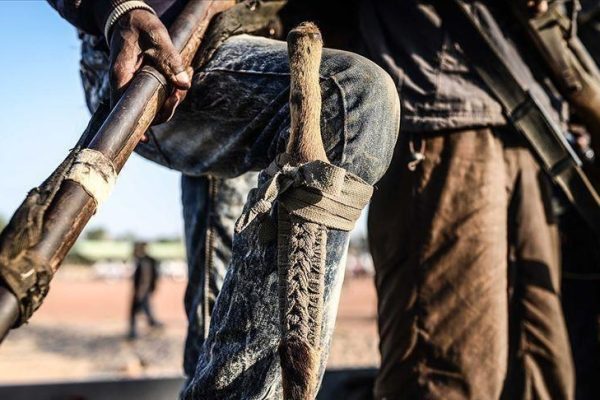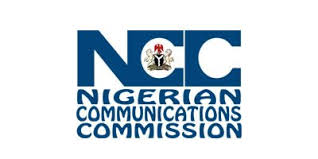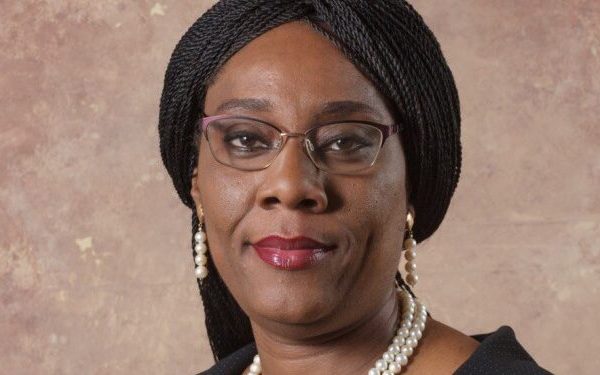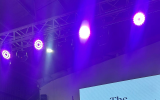Across Nigeria’s 36 states and the Federal Capital Territory, these are the five top news stories you shouldn’t miss:
Okorocha insists he will do better than Buhari
Imo West senator, Rochas Okorocha, has said he wants to contest for presidency in the 2023 general elections so he can bring Nigeria out of poverty and beat President Muhammadu Buhari’s record.
Okorocha formally declared his intention to run for president on the day the Economic and Financial Crimes Commission (EFCC) charged him with allegations of conspiring with others to steal ₦2.9 billion from public coffers.
“It will be wrong for anybody to say that Buhari is corrupt. It will be wrong to say he hates Nigeria. I have said it before; the issue is poverty. For every ₦1 billion problem Nigeria has, they have only 10,000 to solve it. The Nigeria of 2023 requires me as president. Because I am going to approach governance in a different way. Buhari loves the unity of this country but there are drums of separation and drums of war. Poverty is the cause of chaos and calls for separation. Buhari has done well but he would not wish that he becomes the best, I want to beat his record,” Okorocha said.
Buhari lists what next administration will inherit from him
President Buhari Monday, in Abuja, said he was looking forward to completing his tenure in 2023, leaving a legacy for a united, peaceful, and prosperous Nigeria with 24 years of uninterrupted democracy.
”It is our desire to finish strong in the next 16 months and ensure all hands are on deck for the last lap. We are doubling our efforts against all forms of insecurity, equipping our armed forces and strengthening the police. We are determined to continue the war against corruption and fight poverty, we remain focused on building an all-inclusive economic opportunity for all citizens,” he said at a dinner in honour of the 2022 Committee of Business, Political, Media and Civil Society Leaders.
He pledged his commitment to hand over a strong repositioned agriculture-led, diversified home-grown economy, stable democracy and revamped armed and security forces to the next administration.
JAMB fixes 2022 UTME date, adopts new USSD code
The Joint Admissions and Matriculation Board (JAMB) has scheduled the 2022 Unified Tertiary Matriculations Examinations (UTME) to hold between Friday, May 6 and Monday, 16.
The examination body, in its weekly bulletin released Monday, also said the mock UTME will hold April 16 as against the earlier scheduled date of April 2.
JAMB said the registration timetable earlier released by the body remains valid, saying it is scheduled to hold between February 12 and and March 19, 2022.
JAMB said, “The board has concluded arrangements to have an alternative code with a similar function for the benefit of candidates should they encounter any unexpected challenge with the other code. It is to be noted that the Board had used the 55019 USSD code exclusively in the last three or four UTME registration and examination exercises successfully. The 55019 code is used to create profiles for registration by candidates who are required to send their National Identification Number (NIN) via the code for their details to be pulled from the database of the National Identity Management Commission (NIMC) before proceeding to a certified centre for their biometric capturing.”
Nigerians to pay more for chicken, fish
Nigerians will continue to pay more for chicken and fish as the costs of maize and soybeans threaten poultry and fishes industry.
The prices of chickens, eggs and fish have risen by about 50 per cent in recent months, causing concern for consumers. The price increased so sharply because of the high cost of maize, soybeans, and other ingredients used in the production of poultry feed.
NAFDAC seeks more support for herbal medicine growth
The National Agency for Food and Drug Administration and Control (NAFDAC) has called for more support and funding for herbal medicine.
The agency’s Director General (DG), Prof. Mojisola Adeyeye said, “Despite the widespread use, traditional medicines have not yet been integrated into the national healthcare system of many developing countries, including Nigeria. The increasing use of herbal medicine despite general lack of research on some of these products is a call for concern.
“Investment in herbal medicine research and development is needed from all stakeholders, including the government. So, we can benefit from whatever God has given to us freely.”















